Someone had mentioned in one of our earlier workshops exploring the theme of ‘Primary Schools’ that they remembered ‘drawing a house and a tree and a sunshine repeatedly’ at primary school. We began this week’s session, the last of the summer ‘prepping’ workshops, with a group activity exploring this.
‘Was there something that you drew or wrote often when you were at Primary School?’
A3 sheets of drawing paper were lain out on the tables tempting our childhood doodles; horses, paradise scenes and Thunderbirds 2 were some of the images that adorned a line of rope strung up to accommodate our remembered drawings. We listened in as each person explained the story behind their drawing, rekindling the supportive dynamic of attending to and being curious about each memory that had been enjoyed in previous sessions.
Some of the drawings revealed stories of activities shared with siblings, begging the question of whether or not these drawings were actually done at Primary school. To alter the direction slightly, we talked about specific memories of drawing and creating done in the classroom.
Memories of art lessons echoed around, one where a primary school art teacher asked the children to copy paintings by Georgia O’Keeffe sticks in my mind, and we wondered aloud about the intention and purpose of these activities: Why did the teachers ask us to do this? Some answers were ventured; it’s about finding different ways for people to express themselves; to develop craft and motor skills. We collectively mused and considered our memories from new angles, seeing if we could intuit different meanings.
With a dynamic change in energy we were all up and working in partners to ‘sculpt’ each other into different shapes. At first we did this by physically moving the other’s limbs with our hands, and then we did it without touching the other person but using the same motion, as if a force field separated your hands and their body but carried the intention. We stepped back after each round to admire the room’s diverse statues.
This was a warm up for the next exercise – ‘strike a playground pose’ – bodies frozen running, playing, roaming and chatting animated the room. We broke up into four smaller groups and brought the still shots to life to create a short sketch. After watching these back in a group we were directed in replaying our sketches at the same time, so that they overlapped with each other, creating the first group sketch of the summer. A frisbee was being flung around in one corner of the room as someone fell over in another and play sword fighting traversed the space. We performed this several times, the instructions varying; ‘this time, do it as if your over acting at being a child’, ‘this time, like you’re actually an adult’, ‘make everything seem as if it’s the most important thing in the world this time.’
It was our first piece of theatre as a group; a taste of what a performance might look like once all the elements of our investigation have simmered together, infused with nuances of how our primary school persists in each of us, as well as how they are experienced today; the recipe concocted out of the rich ingredients collected in this ‘foraging’ process.
A short break was welcome after our exertions in the playground; we re-joined after five minutes to meet the next task of offering up ideas and thoughts which would inform some preliminary interviews and meetings on the subject. We began by considering in small groups what each of the following would want children to be by the end of primary school, some of the responses are in italics:
Industry – good production worker, good with hands, compliant, literate, numerate
Government – respect for other people, pass Key Stage 2
Secondary schools – good behaviour, confident, well-balanced, inquisitive
Our children – happy, able to cope, to be a child and have fun
‘Us’ – ready for secondary school, critical thinker, caring for others, have encountered diversity and difference
This would be the final workshop of the summer, they will resume in September and in the meantime myself and perhaps some others will carry out some interviews, or ‘meetings’, with people that have worked in primary schools and with those that went to primary school locally or abroad, to scope out what these meetings might look like and harness some material to play with in September. I was grateful that a final task would harvest the groups’ ideas of what they would like to ask people if they were the interviewers…
Some questions for a teacher, governor, retired teacher, dinner lady, caretaker or current student:
How do you deal with trouble?
What made you choose a career in teaching?
What is your favourite subject and why?
How many keys have you got?
What food do the children hate most?
What do you think of the exclusion policy for primary school students?
And with that the final prepping workshop drew to a close. It’s been a great summer – join us next term!
